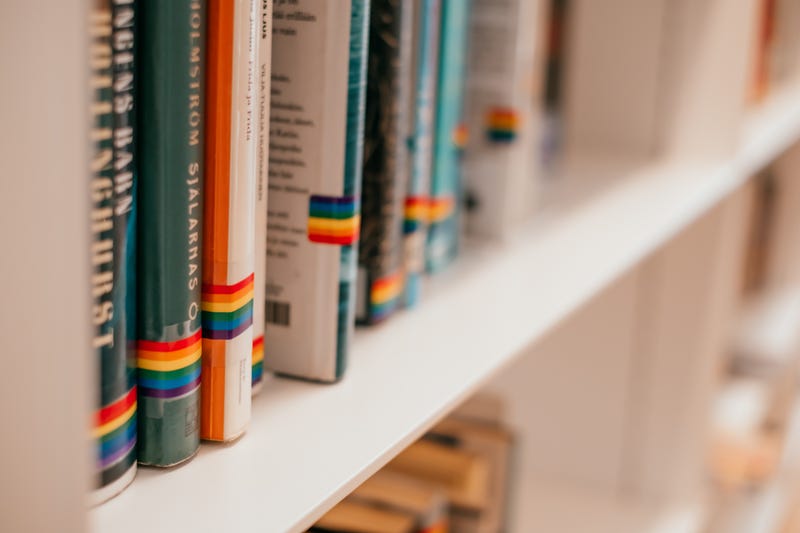
NEW YORK (1010 WINS/WCBS 880) – As books with LGBTQ themes face increasing challenges, the Queer Liberation Library (QLL) has emerged as a resource for readers across the United States.
Co-founded by Kieran Hickey and a team of dedicated volunteers, QLL provides a digital catalog of over 1,200 LGBTQ books.
Hickey, a librarian with a deep love for queer literature, shared the story of how the library came to life. “While I was in grad school at the University of British Columbia, they had a queer library there on campus. And it was the most wonderful, special little place that I had ever been at that time. I was just floored that something like that even existed,” Hickey told 1010 WINS.
Hickey then decided to create a similar resource that could reach a broader audience, particularly in areas where access to such materials is limited or restricted.
“After returning to the U.S. and working in digital libraries, I had an aha moment where I realized that access could be simpler for a big portion of the country,” Hickey said. So Hickey decided to create QLL with a group of like minded friends.
“The team is kind of amazing. Basically, I had my idea in the middle of the night, as one does, and I sent a bunch of voice memos to my friend Eric. He was like, ‘That’s a great idea. You should talk to my friend Lindsay,’” Hickey explained.
This initial spark of inspiration quickly grew as more friends and colleagues joined the project. “We like to say we're nine friends in a trench coat, steering the ship.” Since its start, QLL has grown rapidly, attracting nearly 50,000 readers who now have access to a diverse collection of queer literature.
“A patron basically said that they signed into their QLL account for the first time and seven of their books that they had on notify in Libby were available. They were able to place holds on titles they hadn't had access to for a long time,” Hickey said.
Hickey talked about how these stories show the role QLL plays in providing access to LGBTQ literature, especially for people in rural or hostile environments. “People have made it pretty clear that we are providing something that is necessary and impactful on the lives of everyday queer people in the country. We're really proud of what we're able to do.”
The team hopes to expand its catalog and potentially offer international access. “ At the moment, we’re just national, but one day we would love to be international.”
Although QLL has become quite successful, it faces typical challenges associated with running a nonprofit. As an entirely volunteer-driven initiative, the team balances their commitment to the library with their day jobs and personal lives. “There’s only so many hours in the day, and we all are volunteers,” Hickey noted. This limitation means that progress can sometimes be slower than desired, but the team remains dedicated to their mission.
Funding is another significant challenge for the library. While the library has been able to grow its collection and user base, securing financial support remains a constant concern. “Even just the resources that are available to us are limited because at the moment we only have one vendor and we're hoping to expand,” Hickey said. The team has many ideas for the library’s future but is mindful of the need for sustainable growth.
Despite a significant majority of Americans opposing these bans, they have surged, mainly in public school classrooms and libraries. A report published by PEN America documented 3,362 instances of book bans during the 2022-2023 school year, a 33% increase from the previous year.
Given the contentious environment surrounding LGBTQ books, QLL is prepared for potential backlash or legal challenges. So far, the library has not faced significant negative reactions, but Hickey is aware that this could change as the library grows. “We all went into it with our eyes open. We have steps in place if and when it occurs, because it feels a lot more like a ‘when’ not an ‘if,’” they explained.
